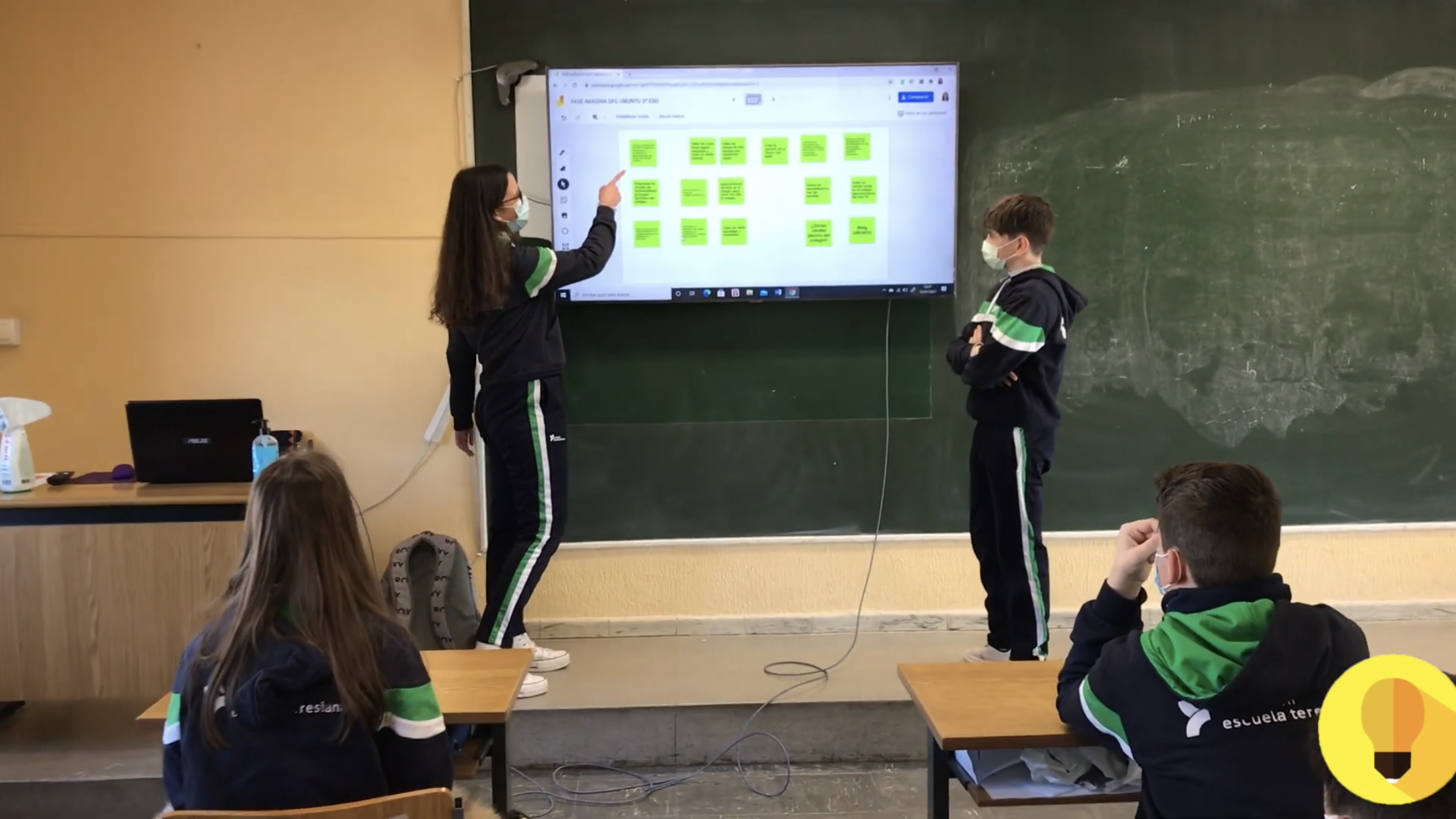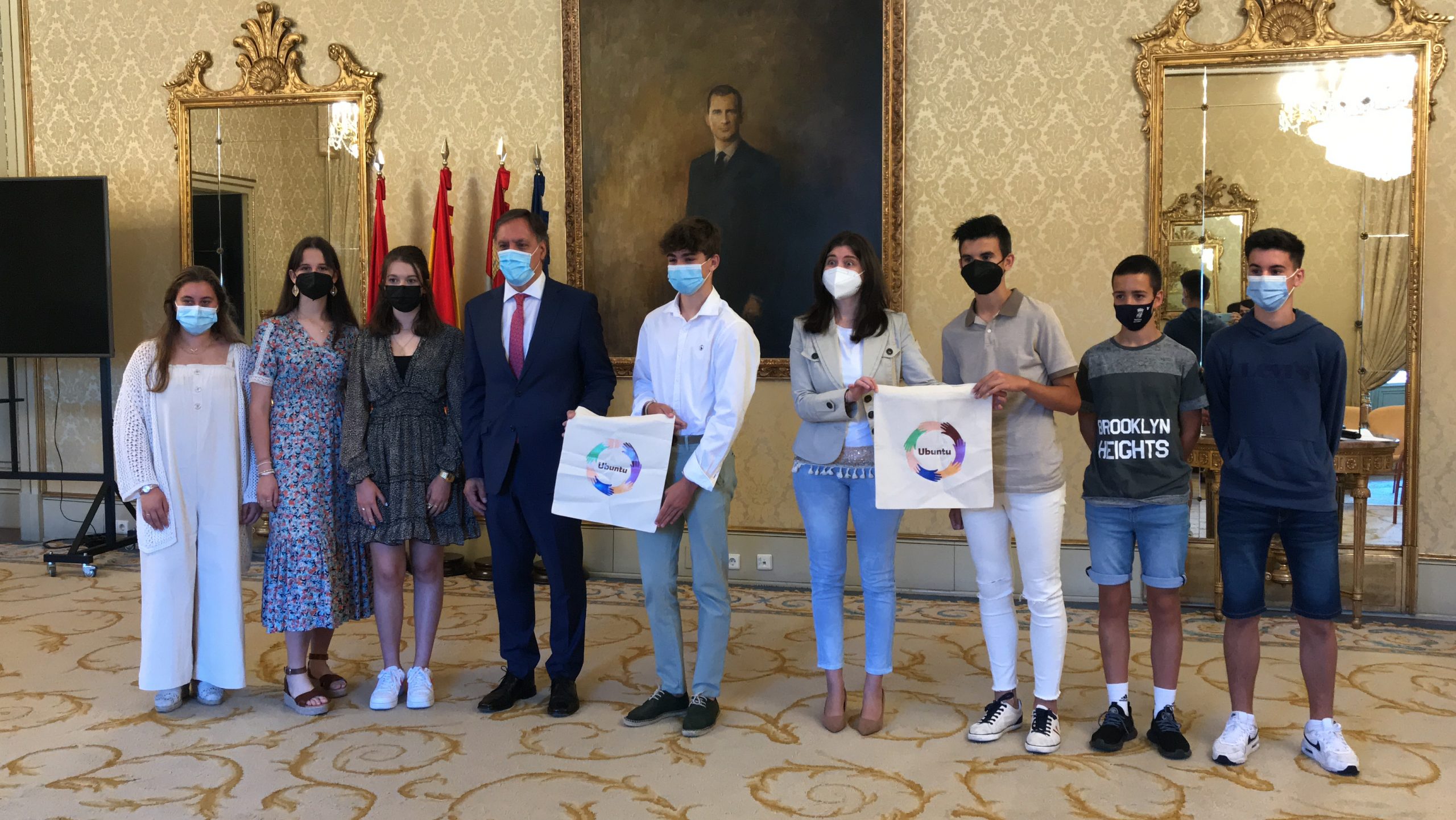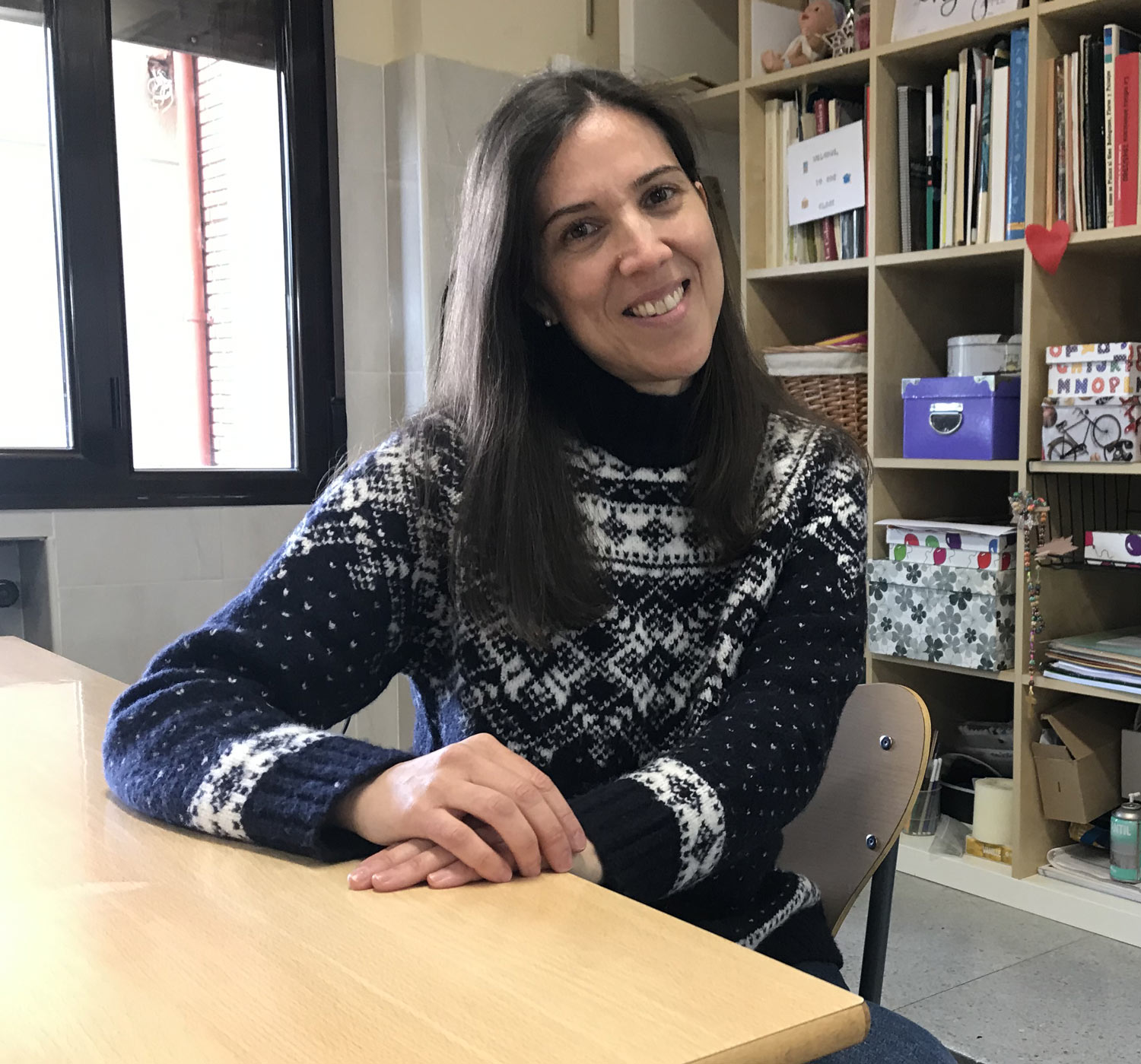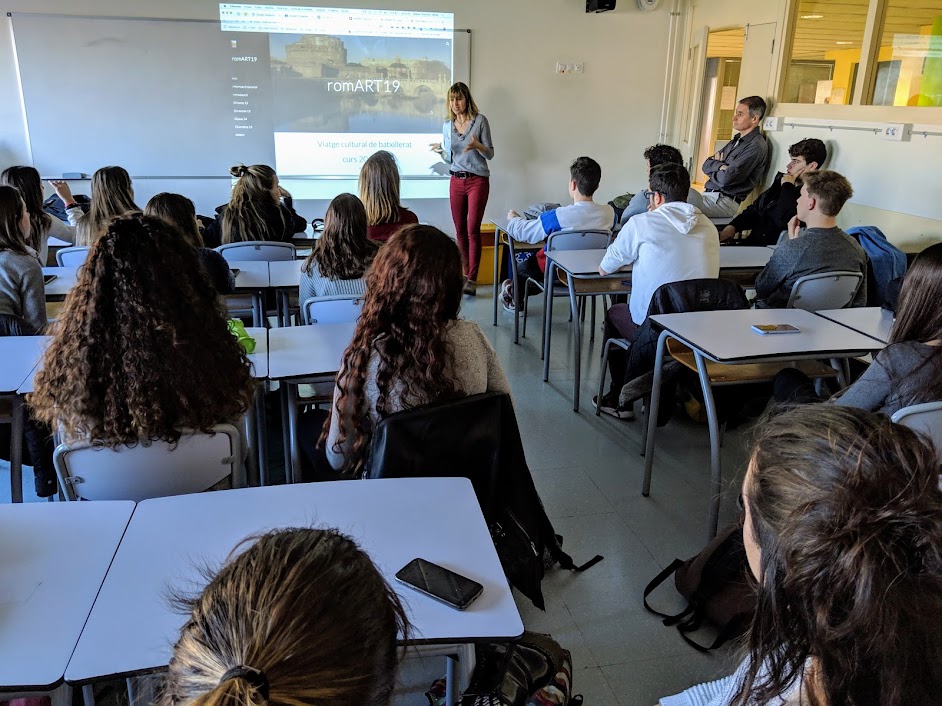UBUNTU: how to integrate a Design for Change project in the curriculum
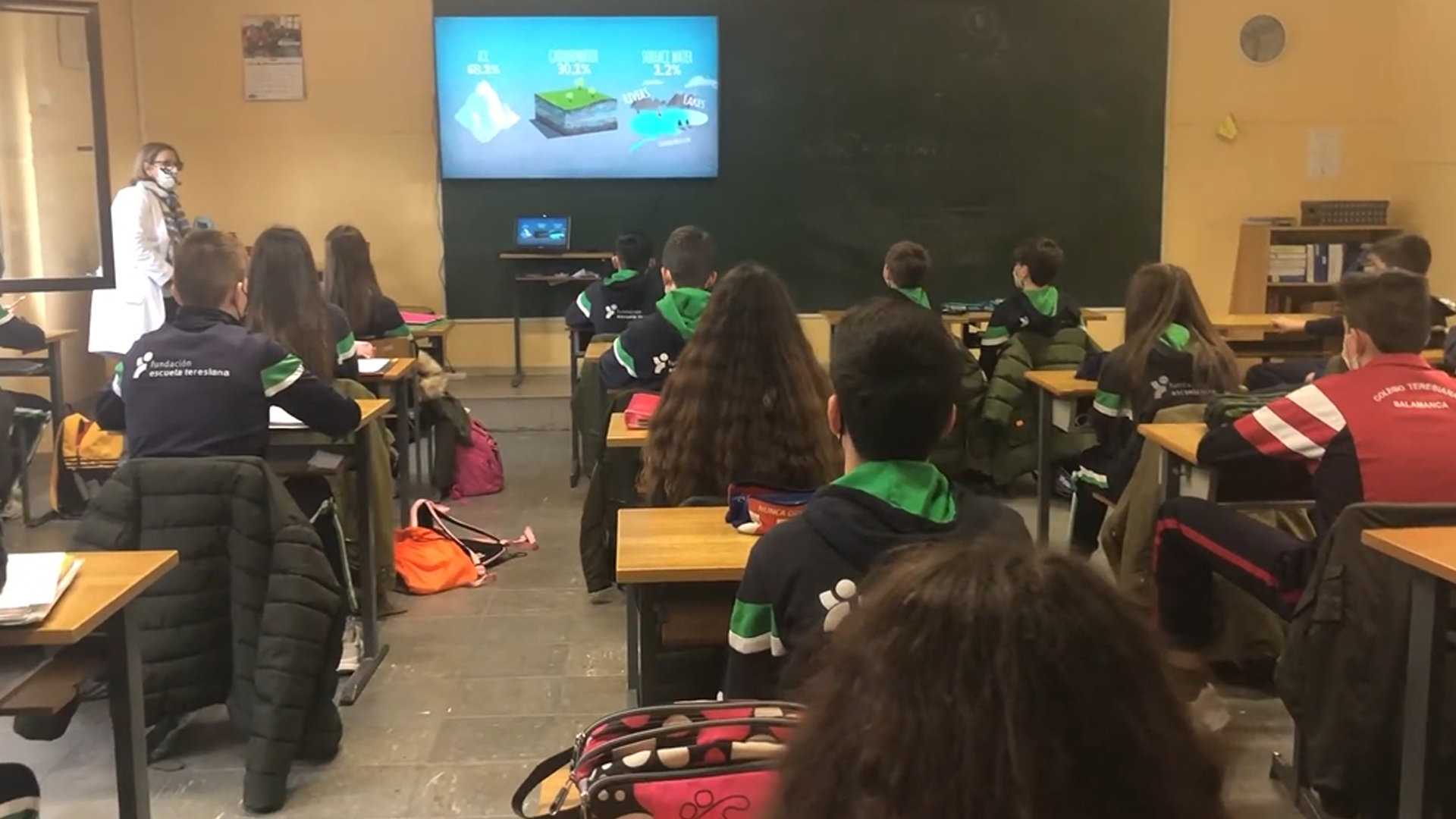

Context
With this project, our school commits to innovative methodologies, Design for Change, and Service-learning, which allow students to become protagonists of their own learning while growing into social changemakers. After carrying out the Feel step, the students concluded that the focus of action would be to make their life more sustainable and, as of that, the project was structured by both students and teachers’ cooperative work.
Highlights...
The objectives of this project were designed under the framework of reference of the Sustainable Development Goals, and these will be stated taking into account the different interventions carried out in the DO step.
Didactic sequence
Specific training on sustainability and climate emergency
The blog, created by a group of students from the communication team of the project, contains the following reflections:
Articles about world pollution: https://ubuntudfc.blogspot.com/search/label/La%20contaminaci%C3%B3n%20del%20mundo
Coltan and life’s fragility: https://ubuntudfc.blogspot.com/search/label/El%20colt%C3%A1n%20y%20la%20fragilidad%20de%20la%20vida
The water footprint:
https://ubuntudfc.blogspot.com/search/label/La%20huella%20h%C3%ADdrica
Our world:
https://ubuntudfc.blogspot.com/search/label/Nuestro%20Mundo
Stop and think:
https://ubuntudfc.blogspot.com/search/label/P%C3%A1rate%20a%20pensar
Salamanca Green city:
https://ubuntudfc.blogspot.com/search/label/Salamanca%20ciudad%20verde
Nature and wellbeing:
https://ubuntudfc.blogspot.com/search/label/Naturaleza%20y%20bienestar
Part of the training was also external and online. We participated in the D. Game/Young Innovators workshop where students made an in-depth study of the concept of sustainability and the way to make it possible in our daily life according to SDG 11. Sustainable cities and communities: make cities and human settlements inclusive, safe, resilient, and sustainable.
It was very rewarding to participate at the National Debate League 1Planet4All with students from all around Europe with the common aim of seeking solutions to the climate emergency. (SDG 13. Climate action: take urgent action to combat climate change and its impacts.)
Participation at the Debate League 1Planet4All
https://ubuntudfc.blogspot.com/2021/05/participacion-en-la-liga-de-debate.html
D.Game/Young Innovators Workshop I
https://youtu.be/XF-Srhdkk7k
D.Game/Young Innovators Workshop II
https://youtu.be/DIM_aP4KO0U
In the English course students calculated our own water footprint.
https://ubuntudfc.blogspot.com/2021/02/personal-thoughts-about-our-water.html
Students were organized into teams of work and they decorated the school corridor with reused and recycled materials so as to express the concept of sustainability in a creative way.
https://youtu.be/REhdn27Prp8
In the Technology course, two actions were carried out. First we designed ecological fabric bags made with old T-shirts.
https://youtu.be/b_BiNtWRXQs
Second, we did research on vertical gardens and made different models for our classrooms following the 3Rs.
https://youtu.be/HTdb_tzWXkQ
These actions also involved using the Service-Learning methodology due to the contents of the course.
In the Music course the song “Depende de ti” (“It ‘s up to you”) was created.
https://youtu.be/r2Ydfe9svok
In the Nutrition Unit of Biology and Geology, we designed healthy and sustainable diets (Service-Learning methodology).
https://youtu.be/r2Ydfe9svok
In PE the teacher gave a yoga session and an open air meditation (service-learning methodology)
https://youtu.be/MQNxZEZ62nQ
In Chemistry and Physics a study of renewable energies was developed
In the Music course the song “Depende de ti” (“It ‘s up to you”) was created
https://youtu.be/a3Jd7vOAIO0
We announced the first Ubuntu Photography Competition called “Verde que te quiero verde” (Oh Green, how I love you).
https://ubuntudfc.blogspot.com/2021/03/concurso-de-fotografia-ubuntu-verde-que.html
https://ubuntudfc.blogspot.com/2021/06/foto-ganadora-del-i-concurso-de.html
Together with all the students from bacclaureate and High school, we celebrated a number of international days so as to build awareness of climate emergency, of the impact of our consumption and production system on Earth, and of inequality among countries.
The Global Day of Climate Action: #NoMoreEmptyPromises M19 demands governments to get united and involved in the search for a solution to climate emergency. SDG 17. Partnerships for the goals. Revitalize the global partnership for sustainable development.
https://youtu.be/ZNUjLEt9rfY
International Earth Day. SDG 13. Climate Action: take urgent action to combat climate change and its impacts.
https://youtu.be/lQYz3d6OOB4
Africa Day. SDG 10. Reduce inequalities: reduce inequalities within and among countries.
https://youtu.be/WM-qSSl2Z9I
Building of UBUNTU Design for Change blog
https://ubuntudfc.blogspot.com/2021/01/ubuntu.html
Creation of UBUNTU DFC Youtube Channel
https://www.youtube.com/channel/UCyrRp0VH31FZLlIYRj4JjLg/videos
Opening of Instagram and Twitter accounts to give sustainability and nature an important role on social media
https://twitter.com/DfcUbuntu
Encounter with Fridays for Future Salamanca
https://youtu.be/KGAt7l52zn0
Proposal to the school Management Staff about creating a Sustainability Team.
https://ubuntudfc.blogspot.com/2021/06/un-equipo-de-sostenibilidad-para.html
Reception at the City Hall
https://youtu.be/FhgQ5hNUN_I
Search for support and people who could contribute to our sustainability challenge.
https://view.genial.ly/606f3d9498b2300d7f231aba
https://ubuntudfc.blogspot.com/search/label/Apoyos%20al%20proyecto%20UBUNTU
Project presentation to our families
Presentation to the families:
https://view.genial.ly/6032a45bfad0540d09142dd8
Presentation video:
https://youtu.be/X081wMvbBxE
Celebration of the project and personal commitment to continue taking care of the Earth.
Assessment and conclusions
Successes
Things to improve
"This project allowed me to become a better person. Learning about sustainability in depth has had an impact on me, and I have learnt to discuss and interchange ideas with my classmates."

Take this experience to your classroom!
Tips to adapt the experience to your classroom
Design for Change
Research and reflection on sustainability
The teacher as facilitator
The teacher coordinates
Integrate Design for Change in the curriculum
Resources and materials
Pedagogical links
Technical links


